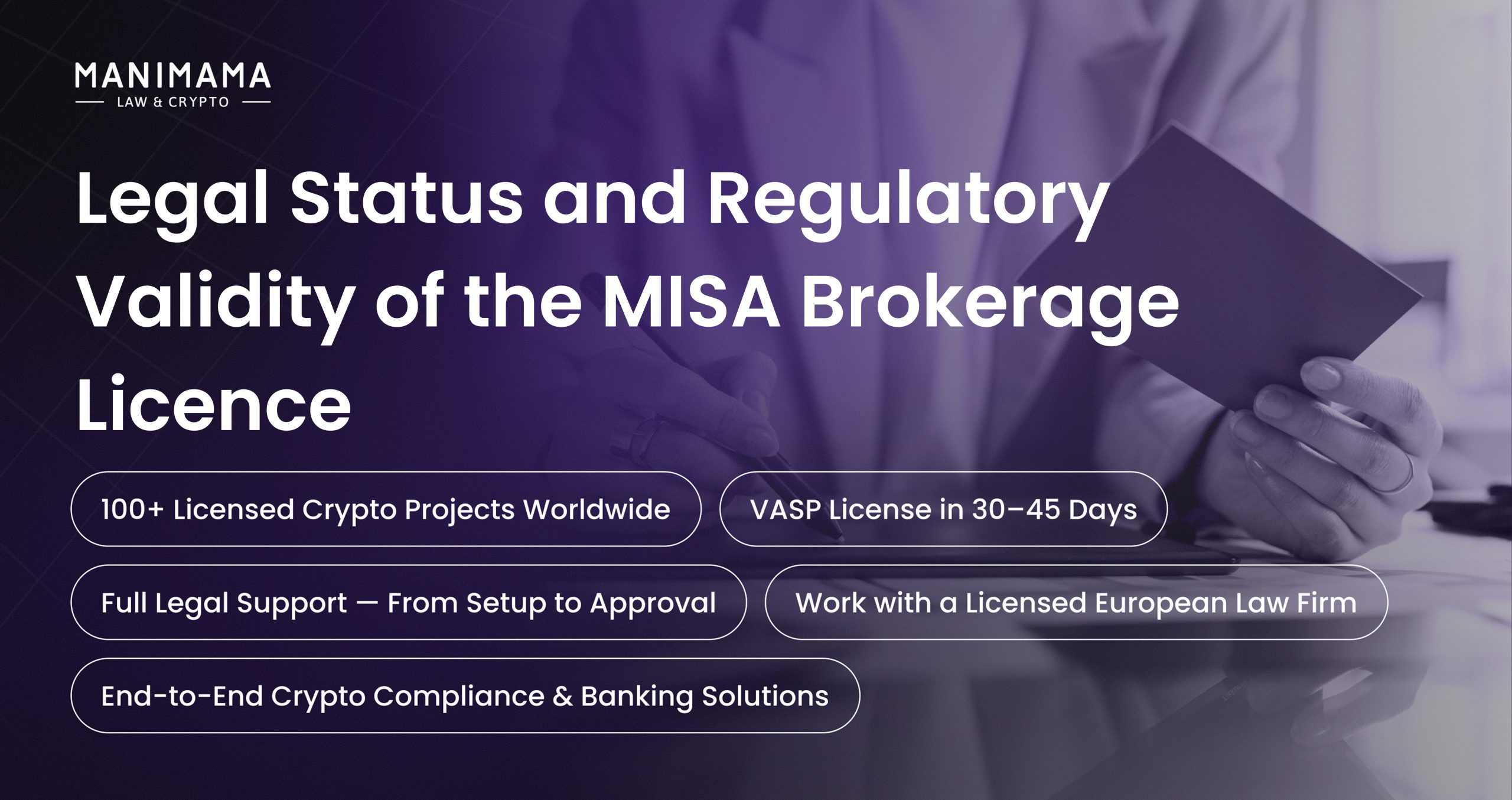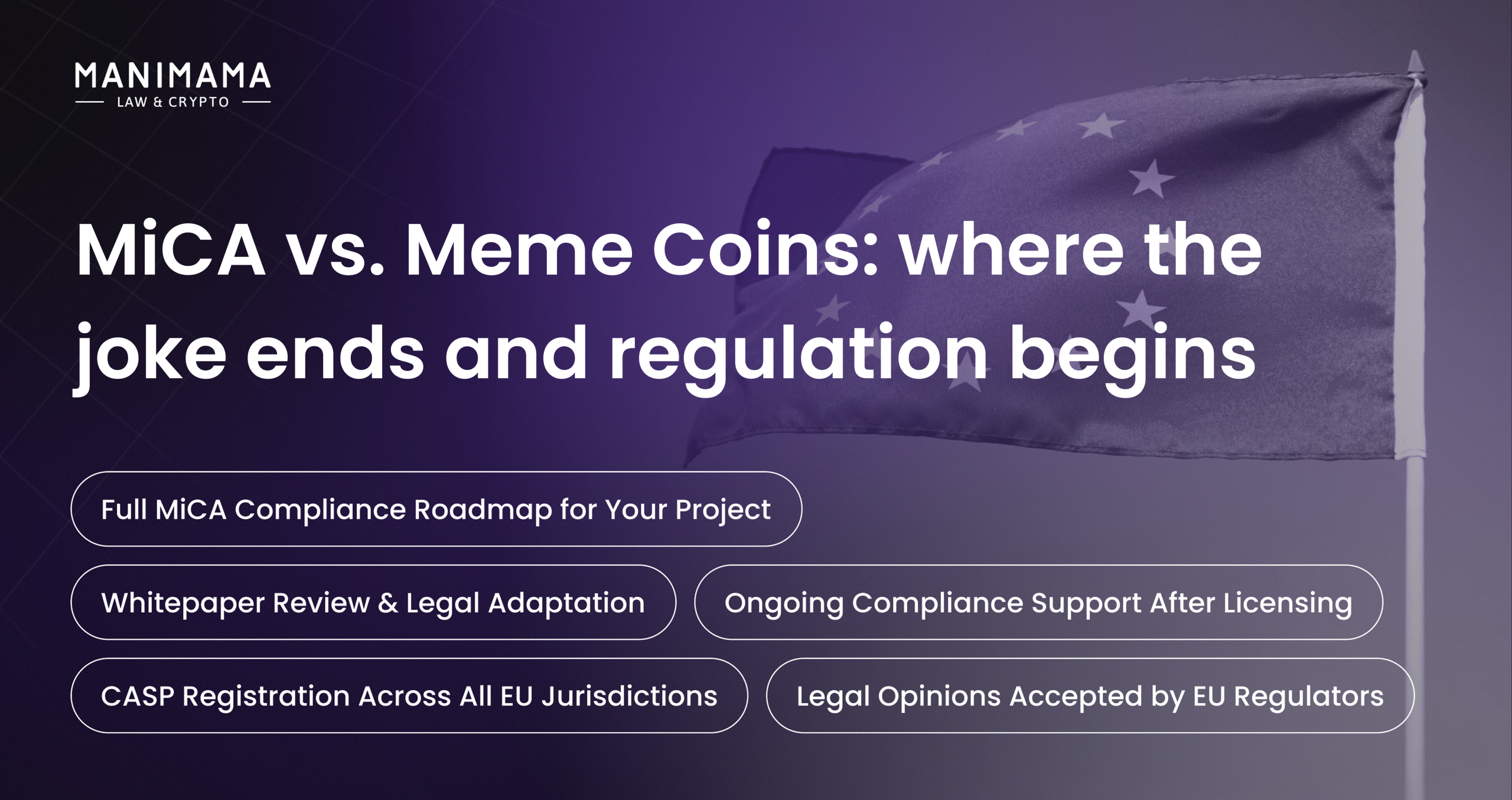In recent years, the small autonomous island of Mwali (Mohéli) within the Union of the Comoros has gained attention in the online brokerage and fintech community as the issuer of the so-called “Mwali International Services Authority (MISA) Brokerage Licence.” Promoted as an international authorisation for financial services, this licence has been used by numerous offshore brokers seeking a low-cost regulatory identity. However, closer legal scrutiny shows that the MISA framework lacks valid standing under Comorian law and provides no recognised regulatory protection or prudential supervision.
Legal framework: union vs. island competence
The Union of the Comoros consists of four autonomous islands – Mwali (Mohéli), Maoré (Mayotte), Ndzuwani (Anjouan), and N’gazidja (Grande Comore). While each island maintains a degree of self-governance, all financial and regulatory powers remain reserved to the Union’s central authorities.
Within this framework, , the small autonomous island of Mwali has become known for issuing the so-called International Brokerage and Clearing Company licence under the MISA. On paper, this document appears to authorise a firm to engage in international brokerage activities. In practice, however, its legal effect is sharply limited and, as confirmed by the Union’s Central Bank (Banque Centrale des Comores (BCC”)), it carries no regulatory recognition within the Union.
The Union of the Comoros established a unified prudential regime under Banking Law No. 13-003/AU of 12 June 2013 on Banking Activities (Banking Law). Articles 1, 5-6 and 61-66 reserve all banking and financial-institution operations to entities licensed and supervised by the BCC. This framework is complemented by Law No. 20-027/AU of 29 December 2020 on the recovery and resolution of financial institutions. Together, these instruments form the only Union-level legal basis for authorising credit institutions, payment institutions and other regulated financial actors.
In contrast, the autonomous island of Mwali maintains its own registry framework – the International Business Companies Regulations 2014 – and, through MISA, issues offshore-style corporate certificates such as “International Brokerage and Clearing Company”. The certificates cite a “Brokerage Act 2013” and an “IBC Act 2014”, yet neither of these laws can be found in official Comorian legal sources.. As a result, they are not equivalent to BCC licences and do not create Union-level authorisation, prudential supervision or access to Union financial infrastructure.
BCC position
The distinction was made explicit on 15 June 2022, when the BCC issued a public Сommuniqué stating that “Approvals delivered by island bodies, including MISA, have no legal effect within the Union of the Comoros for banking or financial-institution activities.” The Communiqué reaffirmed the BCC’s exclusive competence and warned that any activity based solely on an island certificate may constitute unauthorised financial business under Articles 61–66 of the Banking Law. In other words, MISA certificates do not create any lawful right to engage in brokerage, payment, or other financial activities within the Union.
In practical terms, a MISA “brokerage licence” does not meet any of the Union’s prudential, governance or capital standards. For example, Regulation No. 002-2018/BCC/DSBR requires effective board oversight, at least one independent director, and audit and risk committees. Similarly, Regulation No. 003/2015/BCC/DSBR sets a minimum solvency ratio of 10 per cent of risk-weighted assets, subject to semi-annual reporting.
None of these obligations apply to MISA-registered entities, leaving them outside the scope of Union prudential supervision and without the safeguards expected of legitimate financial institutions.
Market perception and industry warnings
Because of this regulatory gap, many European payment providers treat MISA-licensed companies as high-risk offshore structures, unsuitable for integration or onboarding.The absence of recognised supervision and prudential standards has led to repeated misuse of the framework and negative industry assessments.
Independent industry sources describe recurring misuse of the framework:
- Investigations on Medium have called Mwali’s system an “offshore scam structure” due to non-existent prudential oversight.
- OffshoreCorpTalk forum threads warn of “false registers and forged licences” originating from Mwali.
- TraderKnows classifies MISA-licensed brokers as “high-risk”, linking them to unverified FX and crypto platforms.
- FinTelegram directly labels MISA as a “fake regulator”, citing cases where fraudulent brokers presented MISA certificates to mislead investors and payment processors.
Beyond perception, MISA itself lacks the legal authority of a financial regulator. It cannot issue warnings, impose penalties, suspend licences or initiate court proceedings. Its domain registration is privately held on GoDaddy under a .com address rather than the official .km government domain, confirming its non-governmental status. Claims on the MISA website that the “Constitution of Mwali recognises MISA as the island’s financial authority” are inaccurate – the Constitution contains no provisions on financial regulation, licensing, or offshore services.
As a result, MISA licences have no Union-wide legal validity. They do not substitute for BCC authorisation, nor do they allow the holder to conduct banking, brokerage, payment or custody services across the Union or internationally. For legitimate operators, reliance on such certification poses both compliance and reputational risks. For clients, it removes any assurance of prudential supervision or recourse.
Conclusions
So, offshore registration under MISA does not create a licensed financial institution. Under the Union’s constitutional and statutory hierarchy, only the BCC may grant and supervise financial authorisations. MISA-issued certificates, lacking regulatory recognition, do not permit the conduct of banking, brokerage, payment, or custody activities within the Union or abroad; and entities marketing MISA certificates as regulatory licences risk misleading investors and counterparties – a practice increasingly targeted by payment networks and compliance teams.
At Manimama Law Firm, we help businesses navigate this new reality effectively. We prepare documentation, manage application processes, and develop crypto compliance strategies that are built for the long term.
Our contacts
If you want to become our client or partner, feel free to contact us at support@manimama.eu.
Or use our telegram @ManimamaBot and we will respond to your inquiry.
We also invite you to visit our website: https://manimama.eu/.
Join our Telegram to receive news in a convenient way: Manimama Legal Channel.
The content of this article is intended to provide a general guide to the subject matter, not to be considered as a legal consultation.










